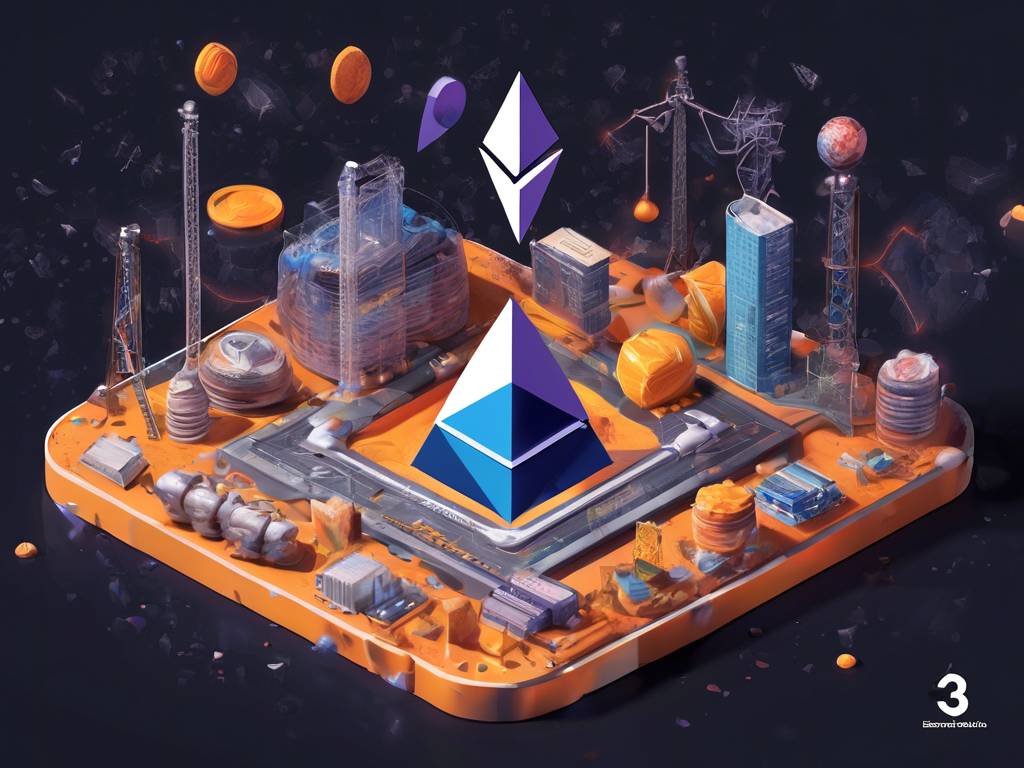Transaction Costs on Ethereum Layer-2 Networks Plunge After Dencun Upgrade
Transaction costs on Ethereum Layer-2 networks like Optimism, Zora, and Base have significantly decreased following the implementation of the Dencun upgrade. Jesse Pollak, the head of Coinbase-incubated L2 Base, noted that the reduction is so significant that wallets now need to display extra decimal places for transaction fees that are less than a penny. In a screenshot shared on Twitter, he showed that a transaction that previously cost $0.31 now appears to cost $0.00 but actually costs $0.0005.
The impact of the Dencun upgrade on Ethereum Layer-2s has been widely acknowledged. Coinbase CEO Brian Armstrong expressed his excitement about the upgrade, stating that it will open up new use cases for cryptocurrency and improve scalability. However, not all Layer-2 networks are ready to take full advantage of the upgrade.
The Introduction of Blobs and Proto-Danksharding
The Dencun upgrade introduced proto-danksharding, which allows large amounts of data to be divided into smaller pieces for quicker processing. This improvement in speed and efficiency leads to lower operational costs for Layer-2 networks, resulting in reduced transaction costs for users.
A key aspect of the Dencun upgrade is the introduction of blobs, which are used to carry large amounts of data without direct interaction with smart contracts or Layer-2 networks. Before Dencun, data had to be stored as calldata, which increased operational and transaction costs. Blobs offer several advantages:
- Blobs can be attached to blocks of transactions and automatically deleted after a few months.
- They are cheaper to process than calldata.
However, Ethereum developer Anthony Sassano cautioned that transaction costs may not always remain as low as they currently are. As demand for blobs increases, gas prices on blob-enabled Layer-2 networks may rise gradually over time.
Conclusion: Lower Transaction Costs and Future Expectations
The Dencun upgrade has had a significant impact on transaction costs on Ethereum Layer-2 networks. Users are now benefiting from reduced fees, making crypto transactions more accessible and affordable. However, it is important to note that these lower costs may not be permanent, as transaction fees could increase in the future due to growing demand for blobs.
Overall, the Dencun upgrade represents a step forward in improving scalability and reducing transaction costs on Layer-2 networks. It opens up new possibilities for crypto use cases and enhances the overall user experience. As the crypto industry continues to evolve, further advancements and optimizations can be expected in the future.
Hot Take: Lowering Transaction Costs with Dencun Upgrade
The recent implementation of the Dencun upgrade on Ethereum Layer-2 networks has resulted in a significant reduction in transaction costs. This development has been widely celebrated within the crypto community as it improves accessibility and affordability for users.
By introducing blobs and proto-danksharding, the Dencun upgrade has enhanced the speed and efficiency of Layer-2 networks. This translates into lower operational costs, which are passed on to end users in the form of reduced transaction fees.
However, it is important to remain cautious about future expectations. While transaction costs are currently at an all-time low, they may gradually increase as demand for blobs rises. Nonetheless, the Dencun upgrade marks a positive milestone in the ongoing efforts to improve scalability and optimize transaction costs in the crypto space.





 By
By
 By
By
 By
By
 By
By
 By
By
 By
By